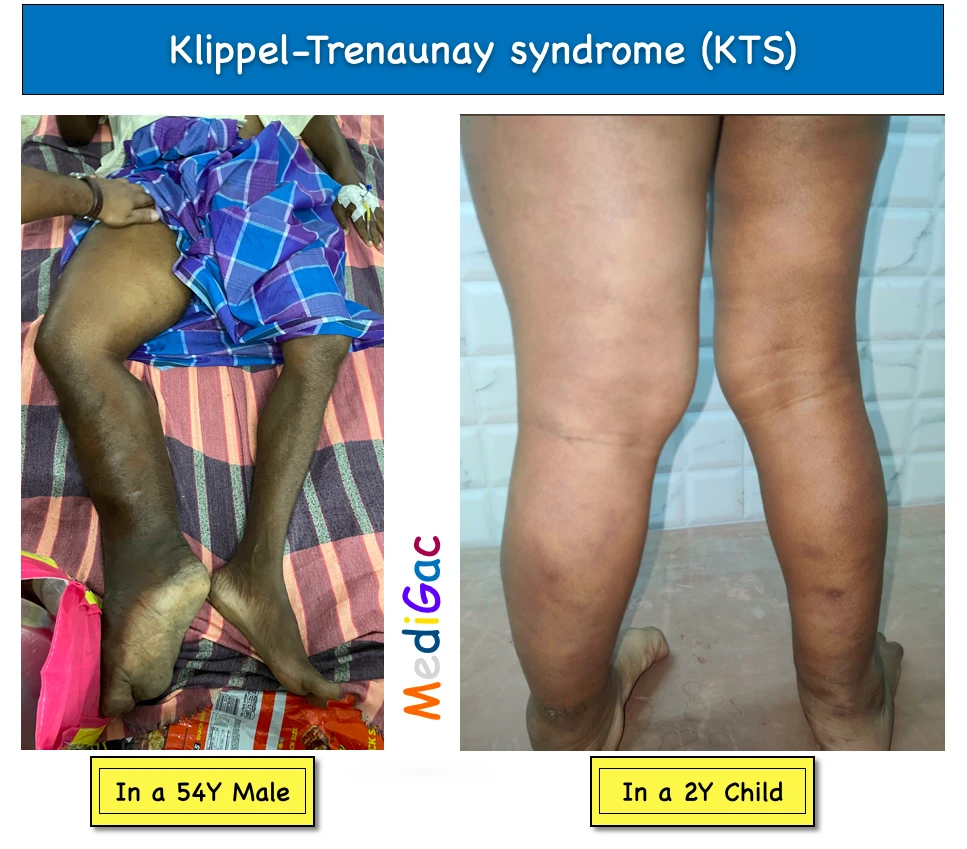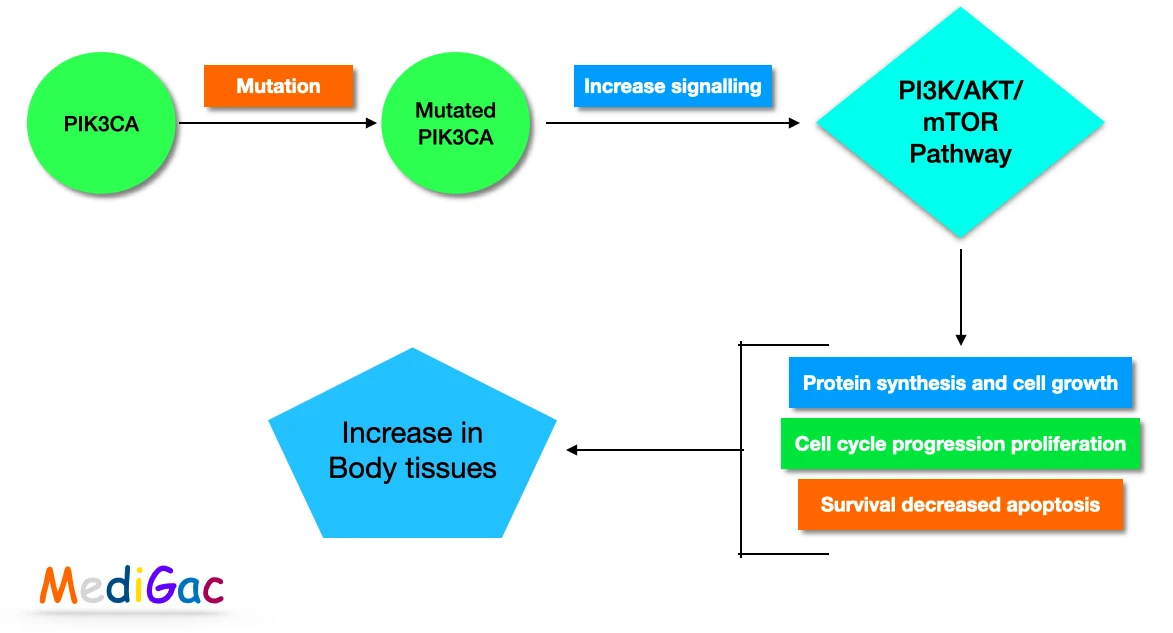
A uncommon congenital abnormality affecting blood and lymphatic vessels as well as abnormal growth of soft and bone tissue is known as Klippel-Trenaunay syndrome (KTS).
1. Clinical features :
- Hemangiomas : Abnormal benign growths on the skin consisting of masses of blood vessels
- Varicose veins
- Fused toes or fingers
- Extra toes or fingers
- Internal bleeding : This can happen to some organs, including the stomach, rectum, vagina, liver, spleen, bladder, kidneys, lungs, and heart, as a result of blood vessel abnormality.
- Port-wine stain : This birthmark, which ranges from pink to reddish-purple, is brought on by additional small capillaries in the epidermis. Although it can affect any area of skin, the birthmark frequently covers a piece of one leg. With time, it could get lighter or darker.
2. Aetiology/Pathophysiology :

- KTS is a hereditary condition. Genetic changes (mutations) are involved, most frequently in the PIK3CA gene.
- This gene is in charge of the body’s cellular expansion and tissue formation.
- Overgrowth of tissues is the outcome of a change in this gene.
- Typically, KTS is not inherited. Gene alterations happen at random during cell division in the prenatal period of development.
3. Investigations :
- Genetic studies : These tests can pinpoint the distinctive pattern of genetic variations (gene signature) that may indicate how the problem developed.
- Contrast venography : Injecting a dye into a vein and capturing X-rays during this technique can identify unusual veins, bloackage, or blood clots.
- USG : To see blood vessels and blood flow
- CT Scan : Forms whole body 3D view, and we can see all abnormalities.
- X-Ray : To se malformations in bones and soft tissues.
4. Treatment :
No specific treatments are there, all the treatments are symptomatic or according to clinical features.
- Leg length : To compensate different length of legs, we can give orthopaedic shoes to the patient.
- Physiotherapy : Lymphedema in the arms or legs and blood vessel swelling may be relieved by massage, compression, and adequate limb mobility.
- Compression therapy : Affected limbs are covered with bandages or elastic clothing to help prevent swelling, varicose vein issues, and skin ulcers.
- Embolisation : This method restricts blood flow to particular blood vessels with the use of tiny catheters inserted into veins or arteries.
- Medicines : Oral medicines like Analgesics can relief pain.
- Surgical treatment : We can surgically correct varicose vein, overgrown tissues of leg, arm.
- Laser therapy : To correct port-wine strains.